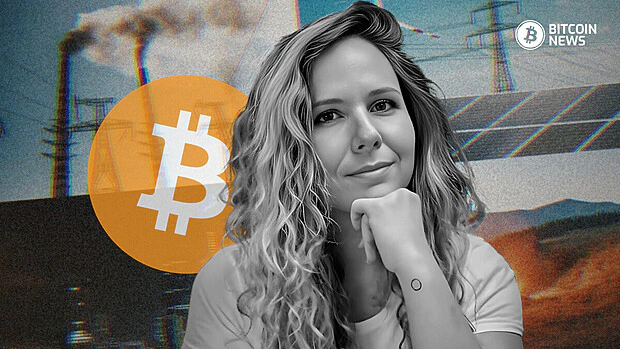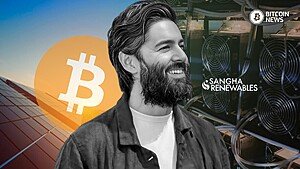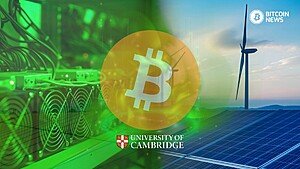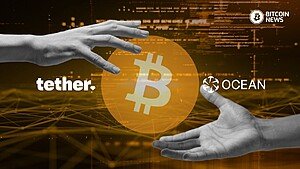Dirty Coin is a fantastic documentary that challenges the prevailing narrative about Bitcoin mining’s environmental impact. For those concerned about climate change and sustainable energy solutions, this film offers a surprising perspective.
Bitcoin mining can be a driving force in promoting renewable energy adoption and empowering communities around the world.
Through compelling storytelling and insightful analysis, Dirty Coin illustrates how Bitcoin mining is not just a revolutionary financial technology but also a transformative force for sustainable development, community empowerment, and a cleaner, more efficient energy future.

One of the most striking segments of the documentary is the exploration of how Bitcoin mining is leveraging hydroelectric power in rural Africa. Communities that generate excess energy are now able to monetize this surplus through Bitcoin mining, thanks to partnerships with companies like Gridless.
This process not only provides financial benefits but also strengthens local mini grids, enhancing energy stability and resilience.
The documentary vividly showcases how electricity from these grids enables refrigeration for food, supports hospitals, and allows people to work at night, significantly improving the quality of life.
In the cold climate of Finland, the heat generated by Bitcoin mining is ingeniously repurposed to provide essential heating solutions. The documentary highlights how miners can earn money while simultaneously supplying heat, a critical utility in such environments.
This approach not only generates economic value but also reduces the reliance on wood and other fuels for heating, thus contributing to cleaner energy practices.
The use of mining-generated heat in various applications demonstrates a practical and highly beneficial strategy that can have a profoundly positive impact, especially in cold regions where heating is vital.
Related: Bitcoin’s Net-Positive Environmental Impact: List of Recent Studies
Dirty Coin goes further to address critical issues like flaring and transmission line delays. The film explains how Bitcoin mining can help eliminate flaring by using excess natural gas that would otherwise be burned off, thus turning waste into something valuable.
Moreover, the constant demand for energy by Bitcoin miners provides a solution to the economic challenges posed by delays in setting up transmission lines for renewable energy projects. This ensures that investments in renewable energy remain viable and attractive, even amidst logistical challenges.
The documentary goes beyond energy improvements to explore Bitcoin’s broader implications for decentralization. By comparing Bitcoin to the internet’s role in breaking up the centralization of media, Dirty Coin compellingly shows how Bitcoin can divorce money from state control.
This paradigm shift is presented as a catalyst for increased individual liberty and financial sovereignty, portraying Bitcoin as a movement towards a freer, more equitable world.
The film emphasizes that those in control often resist change to maintain their power, and Bitcoin’s rise challenges the legacy financial systems built on control and centralization.
By highlighting Bitcoin’s potential to create infinite positive-sum games, the documentary starkly contrasts this with the rent-seeking behavior prevalent in the fiat system.
Dirty Coin does not shy away from tackling much of the fear, uncertainty, and doubt (FUD) frequently spread by legacy corporate media about Bitcoin. It reminds viewers that when those in control feel threatened, they resort to misinformation to maintain their grip.
By showcasing the many ways Bitcoin mining incentivizes cleaner and more efficient energy use, the film dismantles these myths and presents a hopeful vision for the future.
A prime example being Nodal Power in Utah, which uses methane gas from landfills to generate energy for Bitcoin mining, turning waste into value and converting methane into CO2, a less harmful greenhouse gas.
Dirty Coin is a powerful documentary, especially for those who have not taken the time to study and see why much of the FUD around Bitcoin is false.
Of course, it’s not all false. The documentary does not shy away from pointing out that Bitcoin’s first major use case was being digital cash that allowed drugs and other illegal items to be sold on the Silk Road.
However, cash can be used to buy drugs, as well as Venmo, Zelle, CashApp, and plenty of other apps. Bad actors will always use tools to do bad things if they want.
This is the case with any tool. A hammer can be used to build a house or to bash someone’s teeth in. Bitcoin is a system that redefines money, making it a much better tool for storing value than fiat currency.
Dirty Coin will help many understand why both Bitcoin and Bitcoin mining have tremendous potential to foster sustainable development. It eloquently illustrates how this technology can turn waste into value, support renewable energy projects, and promote individual freedom.
This documentary is a must-watch for anyone interested in the future of energy, finance, and societal progress without a corporate media spin on it.










